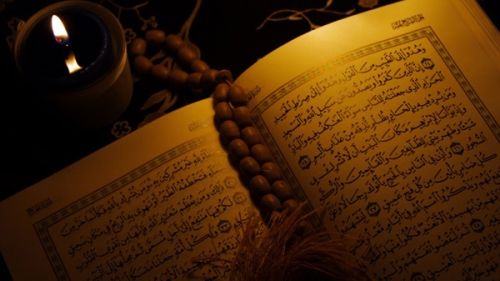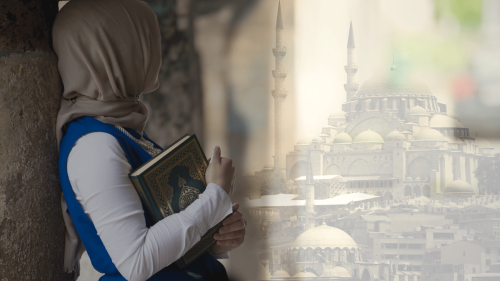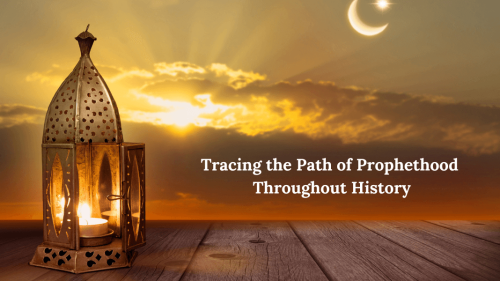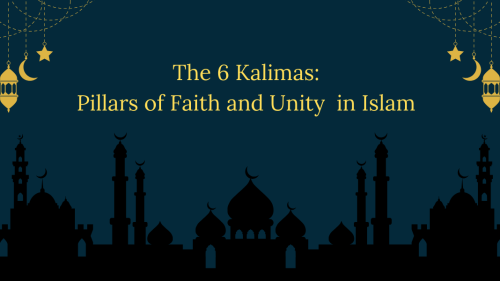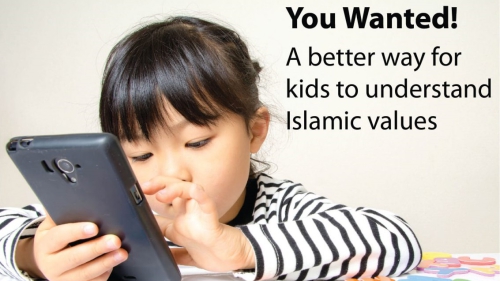There's something about Islam
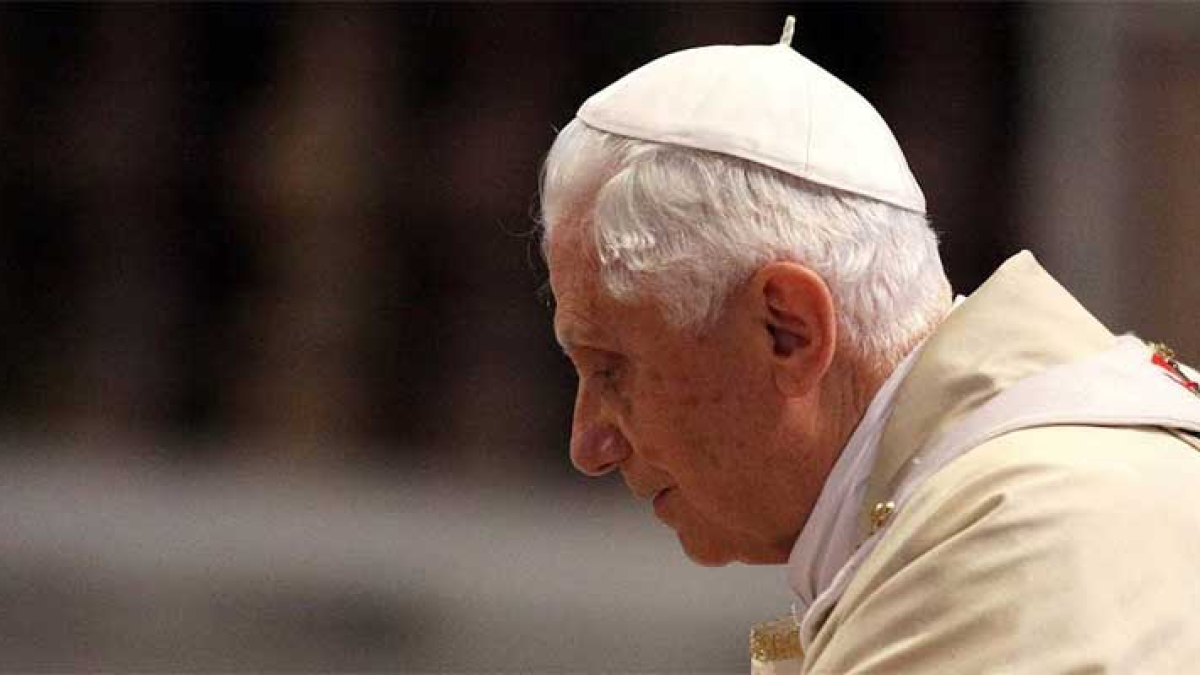
The contentious debate over Park 51 has some asking "How far is far enough?" It has many others asking, in regard to its imam Feisal Abdul Rauf, "How moderate is moderate enough?" This of course raises the larger question, "What constitutes moderate Islam?" In the view of some the term "moderate Islam" is an oxymoron. It doesn't exist. In the view of others the term is redundant. All faithful Muslims are moderate. Islam is "the middle way". Defining what makes a Muslim moderate is probably a fool's errand. Undaunted, here's a fallen Catholic's take.
A little background on how well the average progressive Christian understands the essential differences between Islam and Christianity seems to be warranted. Muslims and Christians share the belief that there is one God. They even agree that he is the God of the biblical Abraham. However, because God chose to reveal himself through different sacred texts that were written by different authors at different times, Islam's concept of the one and Christianity's concept of the one are far from one-and-the-same.
The Holy Spirit inspired them, but men wrote the Bible. Most Christians believe that understanding the Old Testament requires distinguishing between what should be read as literal and what should be read as metaphorical or allegorical. The Gospels of the New Testament have been the subject of even more intense scrutiny. Exegesis that takes context - historical, cultural, linguistic, anthropological, et al. - into account continues to this day. In this sense the Bible is organic. God wrote the Qur'an. As a result of its divine authorship, it is word-for-word literally true. It is the permanent, unchanging blueprint for salvation.
Christians believe God is interactive. He has "personality" and is capable of relationships with other personal beings. The God of Islam has revealed himself through the prophets, and he is present within man, but not actively so. He is ultimately unknowable.
Because they share a belief in the one true God, and the belief that only through him can man attain salvation, Christians and Muslims have been arguing over which religion is in possession of his truth since the time of Muhammad. It's not surprising then that the debate over what constitutes "moderate Islam" has become so contentious. Absolutist arguments abound, and they are being advanced even by scholarly and supposedly moderate factions on both sides of the debate.
Roman Catholic Cardinal George Pell offered his opinion as to the problem inherent in the Islamic way of thinking: "In the Muslim understanding, the Qur'an comes directly from God, unmediated. Muhammad simply wrote down God's eternal and immutable words as they were dictated to him by the Archangel Gabriel. It cannot be changed, and to make the Qur'an the subject of critical analysis and reflection is either to assert human authority over divine revelation [a blasphemy], or to question its divine character." If the Qur'an is the perfect and unchanging word of an unknowable God, Islam is based purely on faith. It's all there in black and white. Reason need not apply.
His boss, Pope Benedict XVI, took the argument a step further when in a 2006 speech he quoted a former colleague who retold a conversation held between a medieval emperor and a Muslim interlocutor: "As a Byzantine shaped by Greek philosophy, this statement (not to act in accordance with reason is against God's nature) is self evident. But for Muslim teaching, God is absolutely transcendent. His will is not bound up with any of our categories, even rationality." According to Jeff Israely from Time magazine: "The risk [Benedict] sees implicit in this concept of the divine is that the irrationality of violence might thereby appear to be justified to someone who believes it is God's will." To make matters worse, the pope continued to quote the Emperor who challenged his interlocutor by saying: "Show me just what Mohammad brought that was new, and there you will find things only evil and inhuman, such as his command to spread by the sword the faith he preached."
To his credit Benedict quickly issued a formal apology, rare for any pope. In no way did I wish to make my own the words of the medieval emperor," the pope said. "I wished to explain that not religion and violence but religion and reason go together." He went on to say that he has "profound respect for world religions and for Muslims."
On the issue of whether faith in Islam requires the application of reason, Islamic scholar Aref Ali Nayed explained: "Muslim scholars were always aware of the fact that the activities of interpretation, understanding, and exegesis (of God's eternal discourse) are forms of human strenuous striving that must be dutifully renewed in every believing generation. Solemn belief in the eternity and divine authorship of the Qur'an never prevented Muslim scholars from dealing with it historically and linguistically."
It is my understanding that many other Muslims take a different, but also highly reasoned approach to understanding the Qur'an. They believe that the ultimate meaning of the Qur'an is known only to God. For them the Qur'an is not restricted to its literal aspects. It also has inward aspects. In other words, it's not acceptable to reinterpret the divine narrative, but it is essential that one continues to strive to understand its ultimate meaning by reading between the lines. Diverse and decentralized Islam - comprised of numerous sects and schools - resists generalizations, something the Roman Catholic hierarchy should have considered before it spoke.
However, Ingrid Mattson, President of the Islamic Society of North America seemed determined to be similarly polarizing: "Benedict may wish to argue that somewhere in the minds of Islamic suicide bombers is an unstated understanding that if anyone tried to reason them out of their plans they would counter that logic had no role because this was the will of God. But that would be an assumption on his part. And that exposes the essential arbitrariness, at least for now, of the Pope's approach. If he wants to make an 'essentialist' argument against Islam-that is, to suggest that there may be something in it that is intrinsically more friendly to fanaticism-then he needs to do it in some way other than the seemingly casual, off-the-cuff route he has chosen."
From the average progressive Christian's perspective - or maybe it's just my own - there are extremely conservative schools within Islam that are comprised of backward-looking literalists. Within these schools are extremists who cherry pick the parts of the Qur'an that support their violent cause - a cause many think is more political than religious - and ignore the parts that don't. Their pitch goes something like this: the Qur'an is literally the word of God. Violent jihad is a sacred duty. God is unknowable. To question his perfect word is blasphemous. Do as he has [or we have] commanded and heaven will be yours. Reason need not apply.
It seems to me that there is considerable tension within Islam between backward-thinking literalists who believe the word of God as conveyed to Muhammad in the 7th century and recorded in the Qur'an cannot be interpreted, and forward-looking moderates who, without disputing that it contains God's exact and perfect word, believe the Qur'an must be interpreted and/or read between the lines for its divine author's true meaning to be understood.
The vast majority of my fellow Americans of the Muslim persuasion reject violence in the name of God, believes the Qur'an must be interpreted to be properly understood and shares my pluralistic belief that a just God will save a worthy person of any faith. But on a global scale, I am unsure which side is winning.
My definition of moderate Islam is as follows: Muslims who read the Qur'an fully and sensibly, reject violence in God's name, want to live in a pluralistic society that tolerates religious diversity, and importantly, recognize that there is in fact an aspect of Islamic doctrine that leaves it open to manipulation by Islamists and the violent extremists who hide behind them, is moderate.
That moderate-minded believers of all faiths [or no faith at all] might ally themselves with others of a similar ilk seems to me to be a reasonable premise. But until the Muslim middle can demonstrate it is capable of self-criticism by recognizing that there is an aspect of Islam that can be manipulated to misrepresent God's will, its claim that Islam is a religion of peace and tolerance will sound suspicious to Western ears ...even those that are connected to moderate brains.
For its part, the Judeo-Christian West needs to understand that when it offhandedly dismisses Islam as irrational and violent, it is playing into the extremists hands. The extremists have succeeded in driving a wedge between moderate thinkers of all faiths [or no faith at all]. Cooperation among members of the moderate middle is the extremists' worst nightmare. Unfortunately, the moderate middle has been unable to find its voice. And the scholars and clergy in possession of the media microphone are saying all the wrong things. Amen.
Source: AltMuslim - Michael Gonyea was an executive at the J. Walter Thompson advertising agency. Neither ecclesiast nor religious scholar, he continues to be a conceptual thinker and problem solver.
Topics: Iman (Faith And Belief), Islam Values: Harmony
Views: 4242
Related Suggestions







